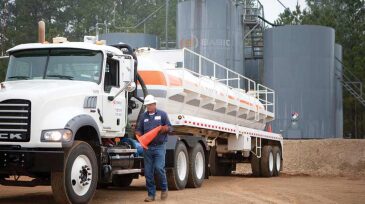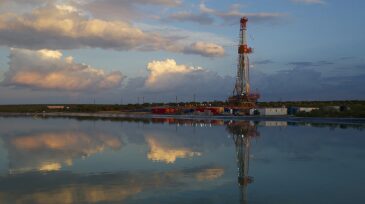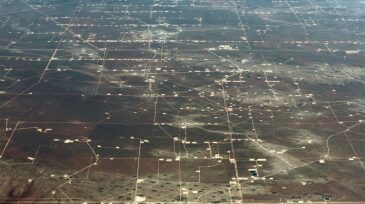Fracturing/pressure pumping
Major increases in hydrocarbon production require both incremental and revolutionary technologies, industry leaders said during the SPE Hydraulic Fracturing Technology Conference.
Technology developers expect the tight-oil industry to give lightweight proppants another look after the Permian Basin’s biggest operator becomes an adopter.
In this third work in a series, the authors conduct transfer-learning validation with a robust real-field data set for hydraulic fracturing design.
-
Significant improvements to completions design and manufacturing have been made recently to accommodate long laterals and multiple fracturing or acidizing stages for different reservoir types, lithologies, and conditions.
-
This paper summarizes key engineering discoveries and technical findings observed during the execution of 200 hydraulic-fracturing diagnostic injection tests in the Raageshwari Deep Gas (RDG) Field in the southern Barmer Basin of India.
-
Recycling produced water may not be the soundest economic decision for operators of hydraulic fracturing projects. A water logistics expert examines the design considerations companies must account for with full-cycle water management systems.
-
The rising oil production and produced water volumes in the Permian are expanding the scope and scale of recycling. Apache is aiming to have 50% of its hydraulic fracturing water made from recycled produced water this year.
-
The rising oil production and produced water volumes in the Permian are expanding the scope and scale of recycling. Apache is targeting 50% of its frac water to be made up from recycled produced water this year.
-
Analysts at Rystad Energy, an oil and gas consulting and business intelligence data firm, anticipate a strong year ahead for North American shale oil producers.
-
A recent study found that female mice exposed during prenatal development to chemicals used in unconventional oil and gas operations had abnormal mammary glands in adulthood.
-
Did you know that fracturing is not permitted in parts of the Middle East? And it has been that way for a long time.
-
A professor who the EPA charged with reviewing its 2016 study on hydraulic fracturing’s possible drinking water impacts shared her observations on the flawed process that led to the agency’s final conclusion.
-
A professor, whom the EPA charged with reviewing its 2016 study on hydraulic fracturing’s possible effects on drinking water, shared her observations on the process that led to the agency’s final conclusion.












